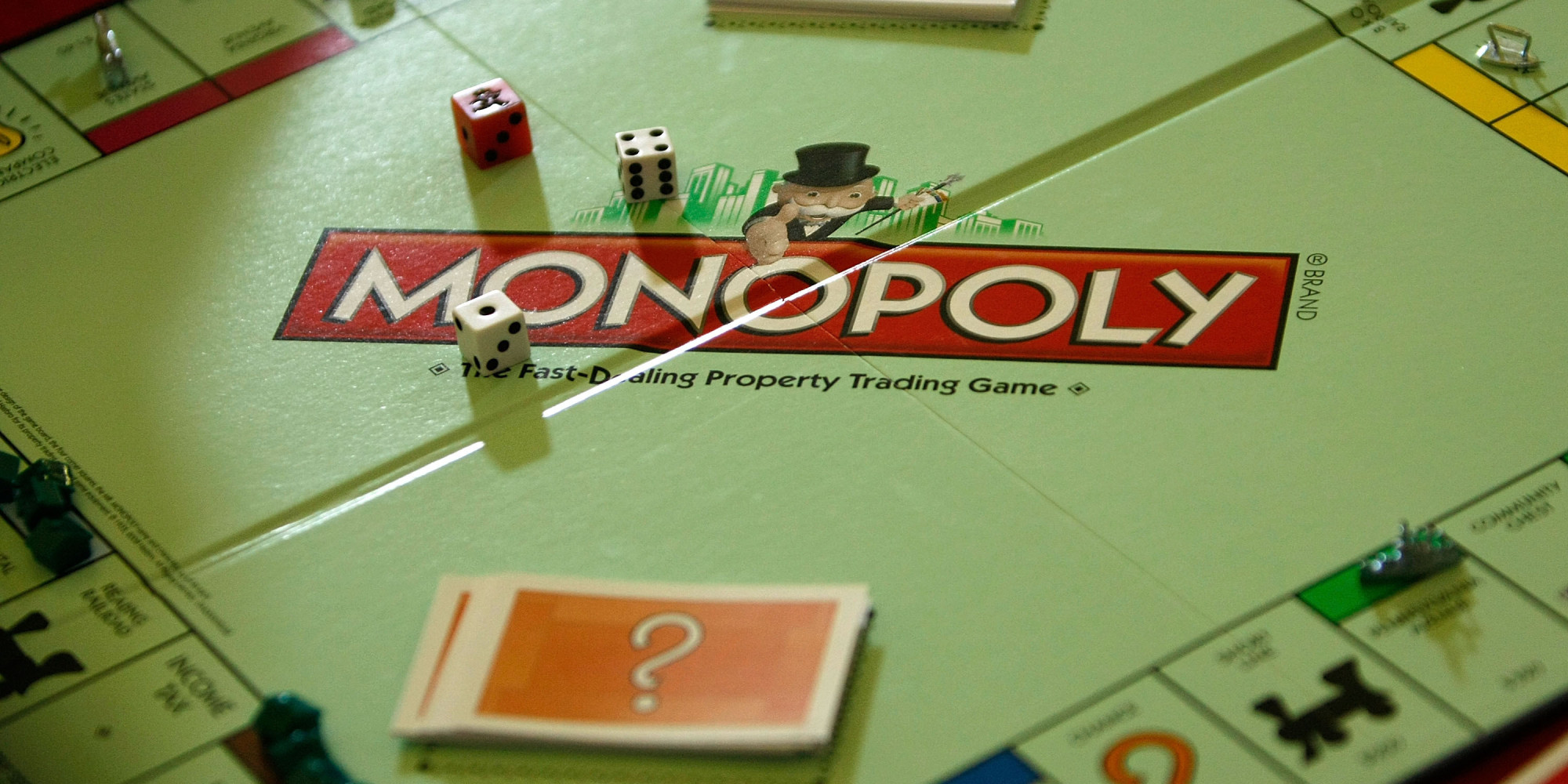

The government may also reserve the venture for itself, thus forming a government monopoly. Patents, copyright, and trademarks are sometimes used as examples of government granted monopolies. A government-granted monopoly or legal monopoly, by contrast, is sanctioned by the state, often to provide an incentive to invest in a risky venture or enrich a domestic interest group.

Holding a dominant position or a monopoly of a market is often not illegal in itself, however certain categories of behavior can be considered abusive and therefore incur legal sanctions when business is dominant. In many jurisdictions, competition laws restrict monopolies. Monopolies can be established by a government, form naturally, or form by integration. Monopolies, monopsonies and oligopolies are all situations such that one or a few of the entities have market power and therefore interact with their customers (monopoly), suppliers (monopsony) and the other companies (oligopoly) in ways that leave market interactions distorted. Likewise, a monopoly should be distinguished from a cartel (a form of oligopoly), in which several providers act together to coordinate services, prices or sale of goods. A small business may still have the power to raise prices in a small industry (or market).Ī monopoly is distinguished from a monopsony, in which there is only one buyer of a product or service a monopoly may also have monopsony control of a sector of a market. Although monopolies may be big businesses, size is not a characteristic of a monopoly. In law, a monopoly is a business entity that has significant market power, that is, the power to charge high prices. In economics, a monopoly is a single seller. The verb "monopolise" refers to the process by which a company gains the ability to raise prices or exclude competitors. Monopolies are thus characterized by a lack of economic competition to produce the good or service and a lack of viable substitute goods. Parker Brothers bought the rights to Copeland's Inflation for $10,000.A monopoly (from Greek monos μόνος (alone or single) + polein πωλεῖν (to sell)) exists when a specific person or enterprise is the only supplier of a particular commodity (this contrasts with a monopsony which relates to a single entity's control of a market to purchase a good or service, and with oligopoly which consists of a few entities dominating an industry).

The company simplified the game and continued to produce it. Knapp had brought the game from a cash-strapped Dan Layman for $200. Parker Brothers bought Finance from David W.Lizzie was not interested in profiting from the game but was happy that a major company distributed it.

Parker Brothers marketed a few hundred sets of the Landlord's Game then stopped. The company bought Lizzie Magie's game for $500 with no royalties and a promise to manufacture the Landlord's Game under its original title without changing any of the rules.


 0 kommentar(er)
0 kommentar(er)
